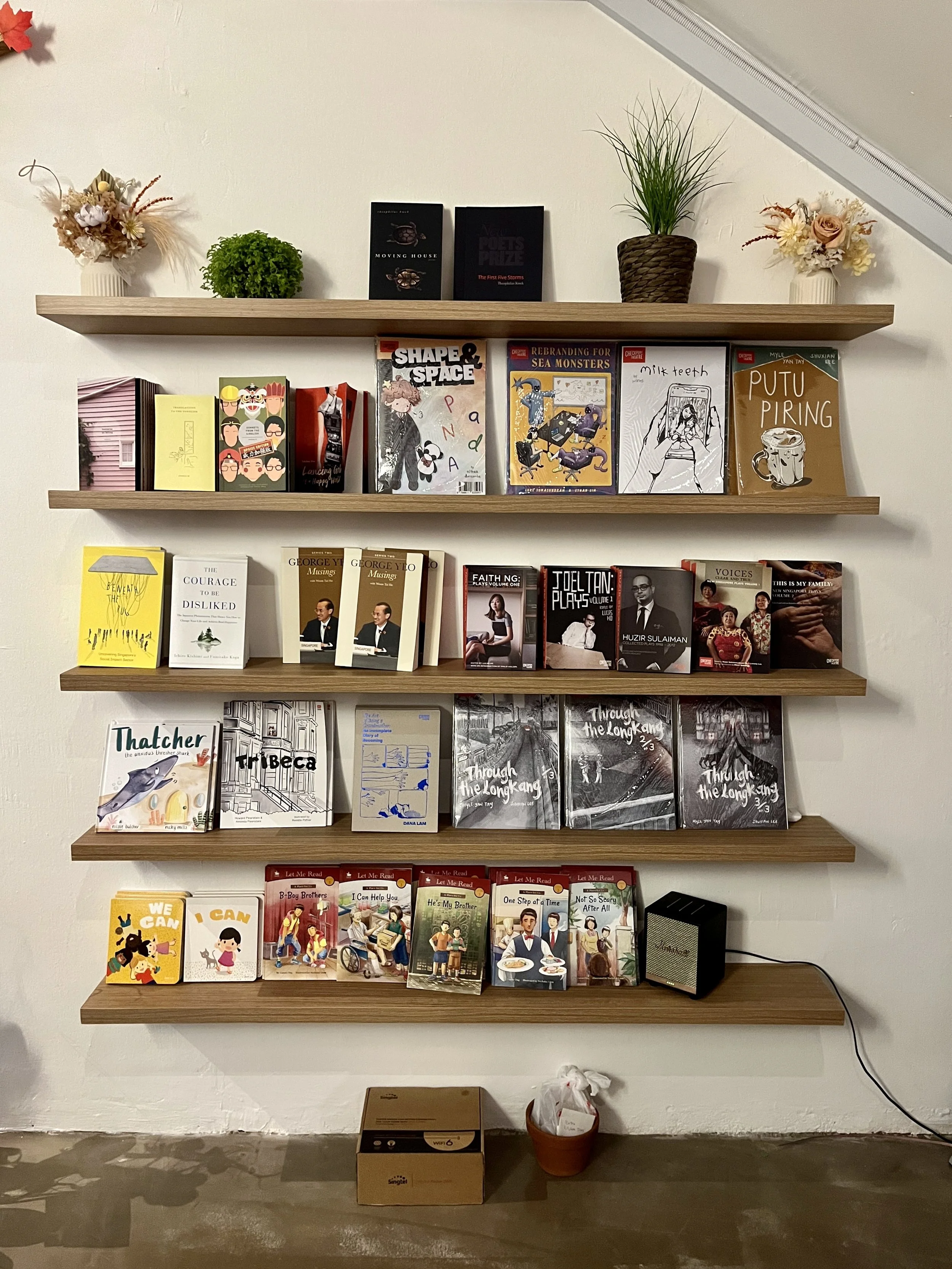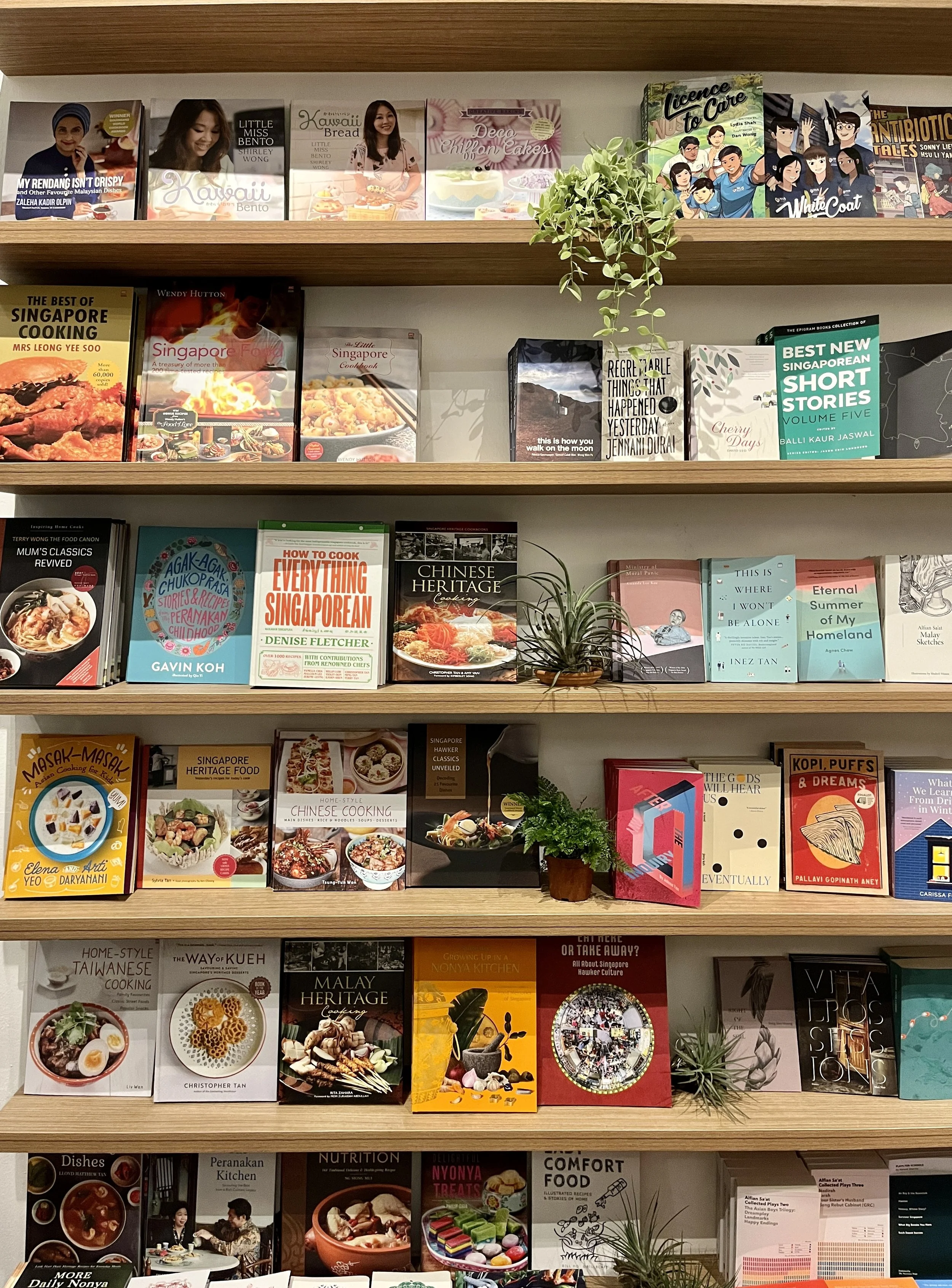Singapore Writers Festivals - Shaping Our Arts Scene
- Devika Misra

- Oct 25, 2025
- 4 min read
Updated: Nov 1, 2025
By Devika Misra
It’s that time of year again ... Nope! Not year-end parties and fake snow … not quite yet I’m afraid …rather, it’s our annual literary festival.
Singapore Writers Festival (the organisers insist the name is not preceded by the definite article), will be held between the 7th and 16th of November. It’s annual announcement popped into my inbox a few weeks ago, and, intrigued by its futuristic theme, “Shape of Things to Come” (note; no definite article before the name here too), I trotted off to the media briefing.

A plethora of some 200 programs helmed by about 300 presenters is on offer. These include not just writers’ talks but interactive community events, exhibitions, workshops debates and of course, that cornerstone of our culture, food. A new offering this year is the “Feast of Words and Flavours” series which showcases regional Chinese cuisines.
Like most events organised by the city state the event is likely to be efficiently run, well-funded and managed down to a Tee. But as a long time Singapore resident, avid reader and SWF attendee, I wonder what this extravaganza, generally centred around two weekends once a year, actually means for readers, writers and the arts in general in the longer term. What is its significance in a region where English is not the first language? After all, we do have the vibrant Ubud and Georgetown literary festivals … do we really need another? And has SWF actually shaped the cultural landscape? This year Singapore is celebrating its 60th anniversary. Certainly a good time to assess its significance and legacy.
I’d answer in the affirmative. SWF is indeed an important platform that is unique in providing a wide range of diverse voices reflective of the island’s cultural evolution. Now in its 28th iteration, it is far older and much better established than both Ubud and Georgetown.
The focus is, and has always been, on Singapore’s diversity. Multi-cultural voices - writers, actors and other local Tamil, Malay and Chinese artists - are an integral part of the festival. Their works are separately curated and do much to complement the English offerings. The rest of the year you’d be hard pressed to have any exposure at all to vernacular language writers and their work.
Alas, so much is made of the “international headliners” that this focus is in fact quite easy to miss. This year Asian Americans, Rebecca Kuang and Ken Lui, along with UK’s Chinese food specialist, Fuchsia Dunlop, are being billed as the “stars”. Two years ago Pulitzer Prize-winning author Viet Thanh Nguyen delivered the key note address at an event that was sold out weeks in advance. Yet, the proportion of local participants is much higher - about 80 percent. This includes expat and migrant voices based here. Of the 300 participants this year, only about 40 - 50 are visitors, and it is this ratio, below twenty percent, that Festival Director Yong Shu Hoong says he always has in mind as he plans the budget and range of programmes.
Another aspect of the local flavour and inclusiveness is the “Open Call” which comprises a significant portion of the programming. In addition to the more traditional direct invites to established literary figures from abroad, members of the public are asked to submit their ideas for participation. This year one of the readings, “A Land Imagined: The Singapore I want To See” (Sunday, November 9, 1:30-3pm) showcases the collaborative work of five pairs of Singaporean and migrant writers who have been working together for months. Another initiative to come out of this year’s Open Call is a panel discussion “Who’s Afraid of Laughing: Political Humour in Singapore” (Sunday, November 9, 1-2:30pm). Satire, in any shape or form is not a genre associated with our city state.
And what of other players in the literary eco system?
Recent years has seen the demise of independent publisher Math Paper Press and Epigram Books’ physical store. But this year the festival does try and redress this to a degree. It pays tribute to players “Behind The Pages.” In homage to Singapore’s 60th anniversary there will be a special exhibition about the evolution of the city’s publishing history.
I daresay SWF's greatest achievement has been to expand the notion of a “writer” and “writing.” SWF’s programming goes well beyond the traditional genres of fiction and poetry and involves a host of other art forms and disciplines. Writing related to food, science, business, social media, and music have all been well integrated and a major track this year is the relationship between technology and literature. Sci fi fantasy writer Ken Lui will deliver the keynote: “The Future of Art in the Age of AI” (Saturday, November 8, 1-2pm).
As we ponder a future with AI, the question is about pushing the boundaries further. Can we go beyond this annual one-off? Can Singapore ever be designated a “City of Literature?” This is a term used by UNESCO to describe cities such as Dublin, Edinburgh, and Beirut, to name a few, and, closer to home, Lahore and Jakarta.
A writer friend once told me that if you ask the average Singaporean male to name three Singaporean writers they wouldn't be able to, and certainly not be able to talk about the content of their writing. The possible exception? Kevin Kwan’s “Crazy Rich Asians,” and this was an impulse externally driven.
I fear the issue is far more complex than just knowledge and interest; it’s about sustainability in terms of numbers and the high cost of real estate in terms of having an eco-system of independent book shops and publishers. That, coupled with the cost of making a living in the arts are also often cited as impediments. I’d venture further. It’s possibly also about cultural baggage - the pressure to conform and be cautious with creative boundaries … an issue, I’m afraid, that is far beyond my pay grade!
Images from Book Bar, an independent bookstore and cafe on Duxton Road with a focus on Singapore literature
 | Devika Misra is the Co-host of the podcast “The Asian Bookshelf” (available on Spotify, Apple) and has been a contributor to “Asian Books blog.” In a former avatar, she worked as a broadcast journalist at Mediacorp’s 938 Live, Singapore’s English news and talk radio channel. Currently she teaches Business English and Oral presentation to adults at Berlitz Language and Assessment Centre. |











Comments